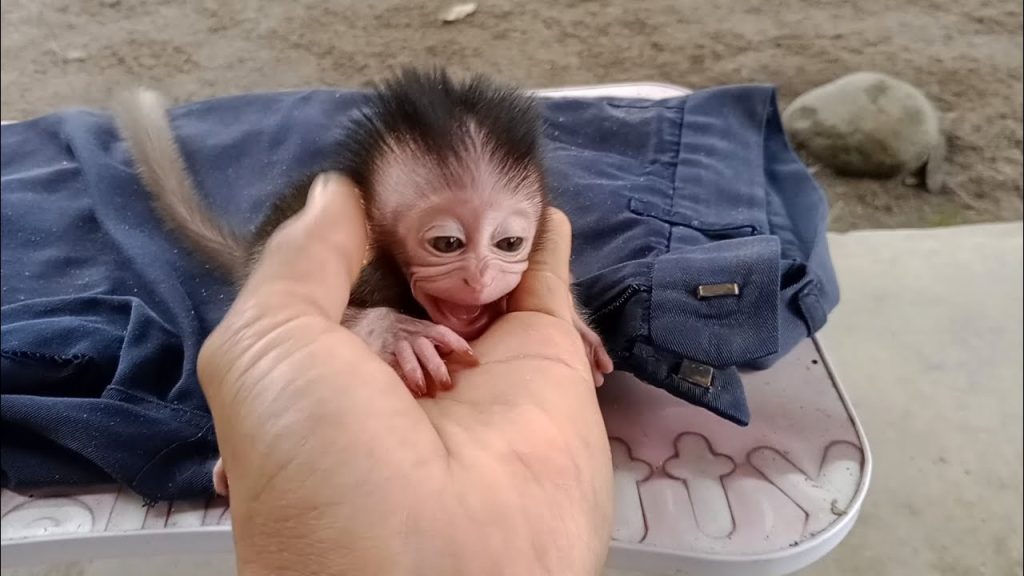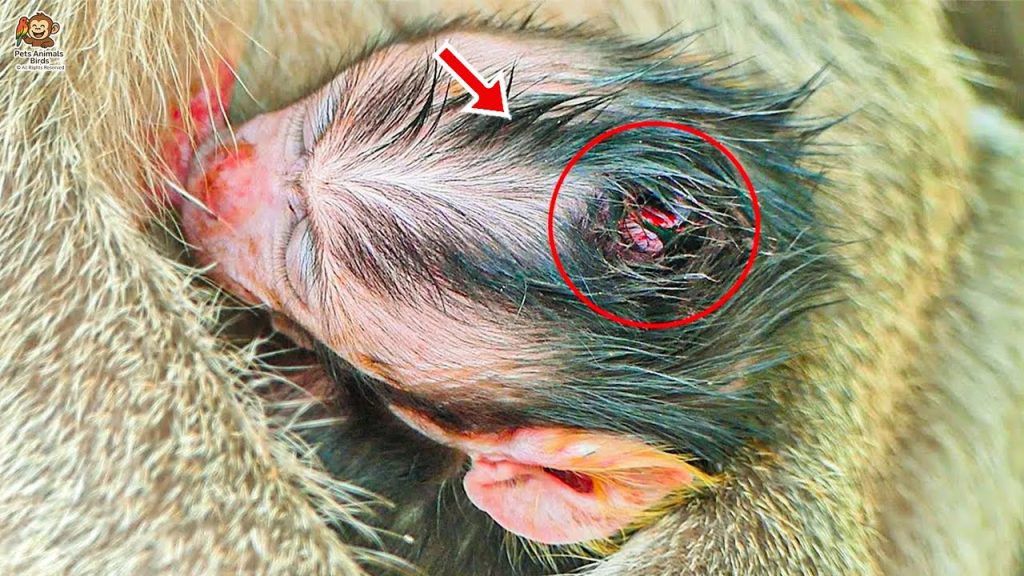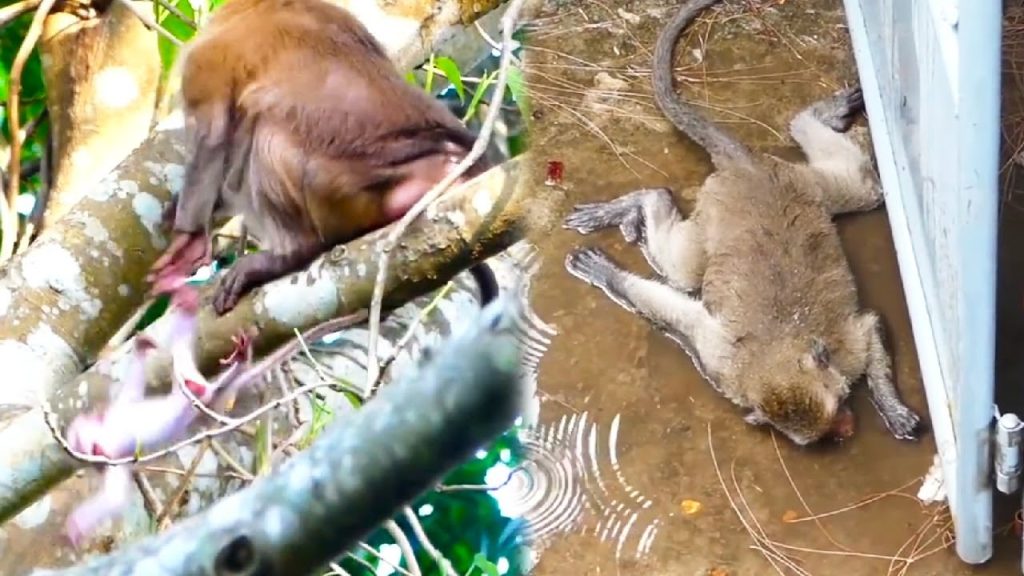
n the middle of the troop’s shaded resting place, a young baby monkey sat clinging to his mother, hoping for the comfort and nourishment that her milk had always provided. But on this day, things were different. The mother, experienced and firm, had begun the difficult but natural process of weaning her little one.
When the baby reached out, nudging her side with small, eager hands, the mother turned away. He tried again, crying softly, pleading for milk that he no longer needed as urgently for survival. But the mother remained resolute. She gave a sharp vocalization and a gentle but clear push, a sign to her baby that he must start to grow more independent.
The baby, confused and upset, protested with louder cries. His small face twisted in frustration as he tried once more to nurse, only to be met with stronger discipline. The mother used her hand to move him back firmly. When he did not listen, she gave him a light, quick nip—not to harm him, but to teach him that her decision was final.
This scene, though hard to watch, is part of the natural cycle of growing up for young monkeys. Weaning and discipline are crucial for the baby to learn to eat solid food, find new sources of nourishment, and adapt to life within the group. Though the baby’s cries sounded heartbreaking, the mother’s actions came not from cruelty but from an instinct to prepare him for the challenges of the troop’s life.


